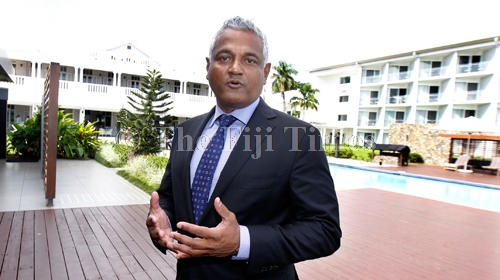AN economist believes Fiji’s position as the hub of the Pacific will be taken over by PNG at the beginning of the next decade in terms of growth rate by four margins.
ANZ Bank’s international economist Dr Kishti Sen said Fiji was the hub with a strong growth rate and fast rate of development while the rest of the Pacific was lagging behind.
However, he said this was set to change because PNG had a lot of investment coming through in its resources sector.
Dr Sen is also the author of the report — Pacific Economic Outlook — and labeled the Government’s 2018-2019 National Budget as a responsible and economy friendly budget.
In an interview yesterday, Dr Sen said it was important to look at the consequences of the budget and its impact.
He said the budget was a deficit, however, it was important to look at the expenditure component to see whether it was just a handout or was the Government actually investing in capital investment, which was what the country needed because of the weak investment from the private sector.
Looking at expenditure as a proportion of national gross domestic product, Dr Sen said Fiji’s expenditure used to be about 30 per cent, but recently it shot up to 33 to 34 per cent and was likely to shoot up to 38 per cent in the next few years.
He said in Fiji’s case, this was driven by capital expenditure — not loan repayment but actual spending on building things such as the rural electrification projects.
“It’s not a very attractive story for the media but its important because right now the economy needs capital expenditure and investment in infrastructure and this is what the Government is committed,” said Dr Sen.
“This is why I think this is a very responsible and economy friendly budget, which is what the country needs right now. “It’s not the time to be taking money out of the country. It’s the time for Government to actually step in and do the fiscal stimulus that it is doing.”
Meanwhile, in its Pacific Insight — Fiji Budget, Dr Sen and ANZ senior economist Tom Kenny noted that as the fiscal stimulus unwinded, they expected the Government to return expenditure towards 30 per cent of GDP — a level that generally produced the smallest level of budget deficits.
The report stated that with ample liquidity, the Government was expected to be able to fund its deficit without crowding out private investment.
“Hence, the borrowings and subsequent expenditure of the funds through the annual budget would add directly to aggregate demand in the economy and help create jobs.”


